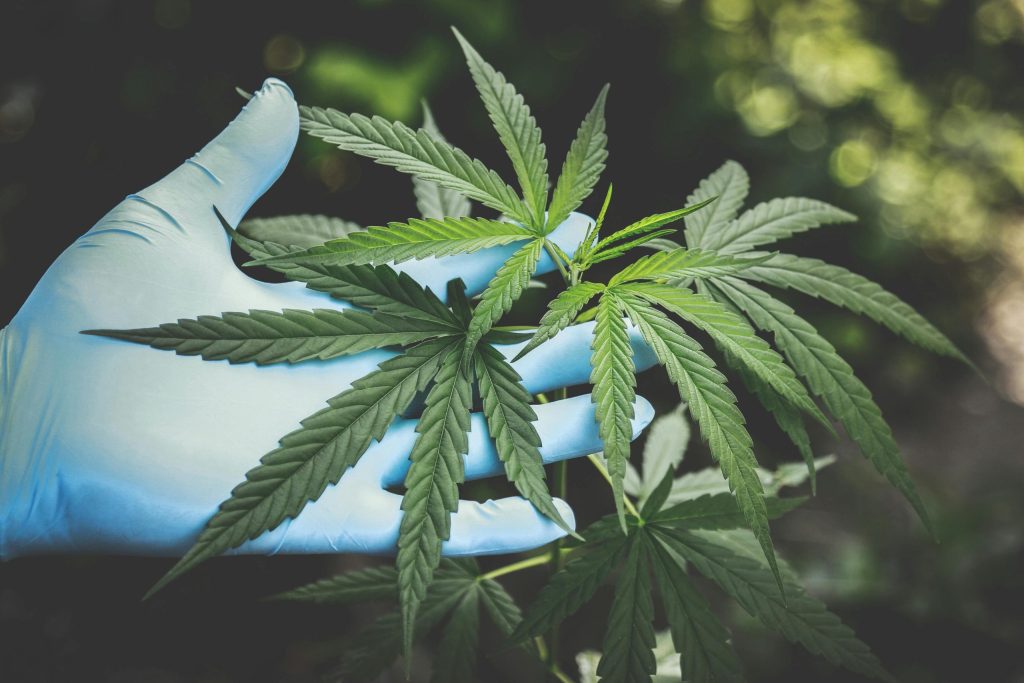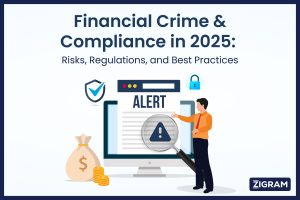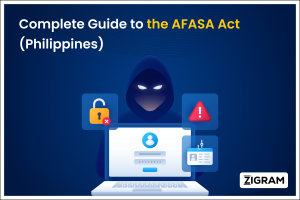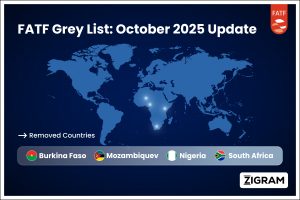In a historic move, the German parliament ratified the new Cannabis Act on 23 February 2024, marking a significant shift in the country’s drug policy landscape. Despite opposition from medical authorities and political parties like the Christian Democratic Union (CDU), the bill passed with 407 votes in favour. Under the new legislation, adults will be permitted to possess small amounts of cannabis for personal use, while stringent measures remain in place to protect minors. Germany thus joins a handful of European countries, including Malta and Luxembourg, in legalizing recreational cannabis, aiming to curb black-market activities and reduce drug-related crime.

Germany’s decision is expected to have far-reaching implications, particularly for its medical marijuana industry, with forecasts suggesting a tenfold increase in revenue for medical marijuana businesses. The country is poised to become Europe’s most cannabis-tolerant nation come April, allowing adults to grow and carry up to 25g of cannabis. Regional pilot projects will explore commercialization, paving the way for potential growth opportunities in the cannabis sector.
Moreover, this move aligns with Germany’s status as one of the world’s largest cannabis markets, with a thriving regulated medical cannabis market. Beyond Germany, this development mirrors broader shifts in cannabis regulation across Europe, with several countries in the process of loosening restrictions or legalizing cannabis for recreational use. Businesses and stakeholders are closely monitoring these developments, anticipating their impact on market dynamics and opportunities for growth.
In parallel, the Council and European Parliament have reached a significant agreement on the establishment of the future European authority for anti-money laundering and countering terrorist financing (AMLA). Set to be headquartered in Frankfurt, Germany and commencing operations by mid-2025 with a staff of over 400, AMLA marks a pivotal step in the EU’s efforts to reform its anti-money laundering framework. With direct and indirect supervisory powers over obliged entities, AMLA is poised to play a central role in combating financial crime across the EU.
Germany’s historic legalization of recreational cannabis marks a significant shift in the European landscape, raising both potential economic benefits and concerns about money laundering (ML) risks. While the cannabis industry is projected for significant growth, financial institutions and authorities must navigate a complex web of regulations and implement robust measures to mitigate ML risks.
Economic Opportunities
The legalization is expected to generate substantial revenue for the German government and boost the medical marijuana industry. Regional pilot projects will explore commercialization, paving the way for further growth. This aligns with broader European trends towards cannabis legalization, attracting international interest and investment. According to Statista, Germany’s cannabis market is poised to surge 14.18% by 2028, reaching a massive $2.2 billion, while creating 27,000 new jobs along the way. These figures paint a promising picture, but it’s crucial to remember, this is just one side of the coin and potential challenges also exist.
Implications of Cannabis Legalization on Financial Crimes: Money Laundering and Terrorist Financing (ML/TF)
However, alongside the potential economic benefits of cannabis legalization, concerns about increased money laundering and terrorist financing risks have emerged. Decriminalization and legalization of cannabis can lead to various avenues for money laundering, including illegal imports and illicit market linkages. Furthermore, the financial sector faces challenges such as cross-border banking, bank de-risking, and the commingling of funds, which could exacerbate money laundering risks associated with the cannabis industry.
Increased Money Laundering (ML) Risks:
Decriminalization:
- Increased Illegal Imports:
Growing demand for cannabis due to decriminalization can lead to a rise in illegal imports, creating opportunities for money laundering through activities like smuggling and placement of illicit funds into the legal financial system.
The case of Antigua and Barbuda, as highlighted in a report by the Caribbean Financial Action Task Force (CFATF). reveals that following decriminalization in 2018, the nation witnessed a notable increase in drug consumption, particularly of cannabis. In the absence of legal channels for purchasing cannabis, the demand appears to be met through illegal imports, prompting concerns about potential money laundering (ML) activities linked to these imports. This issue is compounded by heightened drug trafficking through the Eastern Caribbean, partly attributable to stricter regulations in the Central American corridor.
Legalization:
- Illicit Market Linkages:
- Criminal groups might infiltrate the legal cannabis industry by establishing seemingly legitimate businesses, but simultaneously engaging in the cultivation and distribution of illegal narcotics (e.g., harder drugs) alongside cannabis. This creates opportunities to launder money generated from illicit activities through the legal cannabis business.
- Using legal drug routes for illicit purposes: Criminals might attempt to exploit legal transportation and distribution channels established for cannabis to move other illegal drugs, enabling them to launder money associated with those illegal drugs.
- Criminal groups might infiltrate the legal cannabis industry by establishing seemingly legitimate businesses, but simultaneously engaging in the cultivation and distribution of illegal narcotics (e.g., harder drugs) alongside cannabis. This creates opportunities to launder money generated from illicit activities through the legal cannabis business.
- Financial Sector Risks:
- Cross-Border Banking:
Legalization may lead to increased cross-border transactions in the cannabis industry, which could be exploited for money laundering. Criminals might use bank accounts in jurisdictions with weaker regulations or lax enforcement to launder their illicit earnings from cannabis sales.
- Banking Access Constraints:
Banks outside the country may hesitate to provide services to cannabis businesses due to concerns about legal and reputational risks. This hesitation can drive these businesses towards cash-based transactions, thereby increasing the risk of money laundering since cash transactions are more challenging to trace. The example of Canada illustrates how conflicting federal laws across different countries can obstruct access to banking services for cannabis businesses.
The disparity between Canadian legalization and US federal laws led to difficulties for Canadian cannabis businesses in obtaining banking services. As a result, some businesses were compelled to turn to smaller or less equipped financial institutions or heavily rely on cash transactions. Consequently, the reliance on cash transactions heightens the risk of money laundering, as such transactions are harder to trace and effectively monitor.
- Loss of Correspondent Banking Relationships:
Even if a bank is willing to serve cannabis businesses, it might face difficulties maintaining correspondent banking relationships with other banks due to concerns about money laundering risks associated with the industry. This can limit the cannabis business's ability to operate internationally.
- Challenges for Cashless Transactions:
While cashless transactions can potentially leave a digital footprint, methods like cashless ATMs or cryptocurrency pose high money laundering risks if not properly regulated and monitored. Criminals might use these methods to anonymize and move illicit funds derived from cannabis sales.
- Legal Discrepancies Between Countries:
Germany's recent approval to legalize recreational cannabis has sparked interest in lucrative investment opportunities within the country. However, UK businesses seeking to engage in German cannabis ventures face significant anti-money laundering (AML) challenges under UK laws. While activities may be deemed lawful in Germany, UK AML regulations assess whether they could potentially constitute criminal offenses domestically. Consequently, investments in legal German cannabis enterprises may trigger AML concerns and potentially violate the Proceeds of Crime Act 2002 in the UK.
This challenge extends to entities indirectly associated with German cannabis businesses, presenting complex compliance issues for banks, asset managers, and other financial services firms. Unlike jurisdictions such as Canada and Malta, the UK currently shows no inclination to reconsider the legalization of recreational cannabis, heightening regulatory obstacles for UK businesses entering this burgeoning market.
- Commingling of Funds:
When legal and illegal cannabis activities are involved in the same business or by the same individuals, it becomes difficult to ensure the legitimacy of the funds flowing through the system. This creates opportunities for criminals to launder money earned from illegal activities by mixing them with legitimate cannabis profits.
- Virtual Currency:
The increasing use of virtual currency by international money laundering organizations poses a significant challenge. Criminals can leverage the anonymity and ease of transferring virtual currency across borders to launder money associated with cannabis sales, making it difficult for authorities to track and disrupt these activities.
- Terrorist Financing (TF) Risk:
Drug trafficking remains a potent source of revenue for certain terrorist organizations, despite generally being considered a lower ML risk than other methods. Risk assessment reports by many countries identify groups like Hizballah as actively profiting from drug trafficking and using money laundering to conceal illicit funds.
Anti-Money Laundering Measures for Germany Post-Legalization of Cannabis
Having addressed the risks and challenges associated with the legalization of cannabis, it's imperative to delve into the anti-money laundering (AML) measures that countries, including Germany, and others, should undertake. As the cannabis industry expands, financial institutions are confronted with increasingly intricate challenges related to AML compliance. With cannabis legalization gaining momentum globally, banks and other financial service providers must navigate the complex landscape of regulatory requirements and risk mitigation strategies. Conducting thorough risk assessments, developing robust onboarding processes, and implementing tailored AML compliance measures are essential steps for financial institutions venturing into cannabis banking.
Conducting a Risk Assessment:
Before engaging with cannabis businesses, financial institutions may consider conducting a comprehensive risk assessment to anticipate the regulatory landscape and determine their risk appetite for serving the industry. This assessment might encompass:
- Legal and Regulatory Compliance:
The legalization of cannabis may necessitate adaptations to existing AML regulations and guidelines to address the unique risks associated with this industry. Regulators may consider developing specific frameworks and protocols tailored to the cannabis sector to mitigate money laundering risks effectively.
- AML Compliance Tools and Consulting:
Financial institutions may explore the use of AML compliance tools and consulting services to assess the suitability of cannabis banking products and services within their risk strategy.
- KYC Infrastructure:
They might evaluate their Know Your Customer (KYC) practices and systems to ensure adequate infrastructure is in place for identifying and verifying customer identities.
Developing a Thorough Onboarding Process:
Once the risk assessment is complete, financial institutions may need to focus on developing a robust onboarding process tailored to the unique requirements of cannabis-related businesses. Key considerations might include:
- Comprehensive Application and Questionnaire:
Implementing a detailed onboarding questionnaire to gather essential information about the nature of the cannabis business, its financial activities, and relevant documentation such as registration and licensing details.
- Automated Onboarding Technology:
Investments in automated onboarding technology powered by artificial intelligence and machine learning might streamline enhanced due diligence (EDD) processes, ensuring thorough background checks on businesses and beneficial owners.
- Risk-Rating Criteria and Processes:
Establishing risk-rating criteria and processes for categorizing new customers based on their risk profiles. Continuous evaluation and adjustment of these criteria might be necessary to reflect changes in risk appetite and regulatory requirements.
- Ongoing Monitoring and Evaluation:
Implementing ongoing monitoring procedures to detect suspicious activity and ensure compliance with AML regulations. Regular reviews and updates to the onboarding process might be vital to adapt to evolving risks and industry dynamics.
AML Compliance for Cannabis-Related Businesses:
In addition to proactive risk mitigation measures, financial institutions serving cannabis-related businesses may be required to adhere to specific AML compliance requirements tailored to the industry:
- Due Diligence for Adverse Media:
Conducting thorough background checks on cannabis business employees to identify potential adverse media issues and assess the relevance and timing of any past criminal offenses.
- Due Diligence on Cannabis Businesses:
Scrutinizing the beneficial ownership of cannabis businesses, including licensing documentation and registration procedures, to identify potential red flags and high-risk connections.
- Transaction Monitoring:
Monitoring all cannabis business transactions to ensure compliance with legal and regulatory requirements, flagging any unusual activity or discrepancies that may indicate illicit financial behavior.
- AML Monitoring Controls:
Implementing robust AML monitoring controls to detect and prevent money laundering activities, ensuring that adequate safeguards are in place to mitigate risks effectively.
- Preparation for Regulatory Scrutiny:
Being prepared to defend banking decisions and compliance findings to federal regulators, maintaining transparency and cooperation to navigate the complex regulatory environment effectively.
Germany's cannabis legalization presents a unique challenge for policymakers and financial institutions. While the potential economic benefits are undeniable, mitigating ML risks through robust regulations, effective enforcement, and industry-specific compliance measures is essential. By prioritizing financial transparency and responsible banking practices, Germany can navigate this complex landscape and ensure the sustainable growth of the cannabis industry while safeguarding its financial system from potential illicit activities.
As Germany embarks on this new chapter of cannabis legalization, a collaborative effort is crucial to ensure its success. Here are some key areas where stakeholders can work together:
- Policymakers:
Develop and implement clear regulations that address money laundering risks associated with the cannabis industry, while fostering a supportive environment for the legal cannabis market to thrive.
- Financial Institutions:
Implement robust AML compliance measures tailored to cannabis businesses, while advocating for clear and consistent guidance from regulators.
- Law Enforcement:
Strengthen efforts to combat illegal cannabis activity and money laundering, fostering international cooperation to disrupt illicit networks.
- Cannabis Businesses:
Prioritize transparency and adopt best practices to mitigate money laundering risks, building trust with financial institutions and regulators.
- Research Institutions:
Conduct further research on the effectiveness of various AML strategies in the cannabis industry, informing future policy and regulatory decisions.
By working together, stakeholders can ensure that Germany's cannabis legalization is implemented successfully, balancing economic opportunities with robust safeguards against money laundering and other financial crimes.
ZIGRAM is the one-stop solution for all your compliance needs. Try our FREE DEMO to experience what you’re missing in your AML and KYC processes!
- #CannabisAct2024
- #Germany
- #AML
- #Compliance







